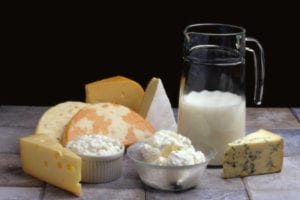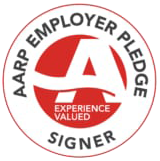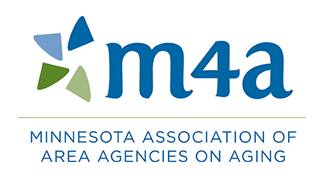June is Dairy Month
Are you increasingly concerned about your bone health? You should be. It is estimated that 10 million Americans currently suffer from osteoporosis, a debilitating condition that commonly results in weakened bone tissue, hip fractures and compression fractures of the spine. Due to hormonal changes that occur during menopause, women are much more susceptible to osteoporosis. In fact, 8 out of 10 of those who have osteoporosis are women. But males are not immune.
Bone mass and strength are predominantly established during our teen and young-adult years and are largely determined by our genes. However, there are several lifestyle factors which can help older adults prevent bone loss and avoid the complications that come with osteoporosis.
 Our first line of defense against osteoporosis is to maintain an adequate dietary intake of foods rich in calcium and vitamin D, along with other nutrients that support bone health. These include vitamins A, C and K, the minerals magnesium and zinc, and protein. It is generally best to get these nutrients from foods that are naturally rich in other vitamins and minerals. In many instances, the nutrients from food work in combination to support bone health and, in all instances, they work together to support total health.
Our first line of defense against osteoporosis is to maintain an adequate dietary intake of foods rich in calcium and vitamin D, along with other nutrients that support bone health. These include vitamins A, C and K, the minerals magnesium and zinc, and protein. It is generally best to get these nutrients from foods that are naturally rich in other vitamins and minerals. In many instances, the nutrients from food work in combination to support bone health and, in all instances, they work together to support total health.
Meeting the recommended calcium requirement is critically important for aging adults. The recommended intake for men and women over 51 years of age is 1200 mg per day. This is nearly as high as the calcium recommendation for adolescents whose bones are working at their highest capacity to acquire as much mineral as possible before reaching peak bone density in young adulthood. For many of us, however, our intake falls short because the aging process makes it hard for us to obtain and absorb enough calcium.
Several factors increase our need for calcium as we age:
- Our bodies don’t absorb calcium as efficiently as they once did.
- Decreased production of hydrochloric acid in our stomachs makes it harder for our bodies to digest calcium.
- Symptoms of lactose intolerance deter many older adults from consuming foods made from milk, putting us at risk for inadequate intakes of calcium and vitamin D.
For most Americans, dairy foods – including milk, yogurt and cheeses – and recipes high in milk, such as puddings, are the main dietary calcium sources.
During June Dairy Month take advantage of all the wonderful dairy products available to us and benefit by improving your bone health.
 If you would like more information about “June is Dairy Month” call the Senior LinkAge Line® at 1-800-333-2433. The Senior LinkAge Line®: A One Stop Shop for Minnesota Seniors is a free statewide service of the Minnesota Board on Aging and Area Agencies on Aging. Specialists provide one-to-one assistance with helping older adults age well and live well. Call 1-800-333-2433 for assistance Monday through Friday from 8:00am to 4:30pm or chat with a specialist online during these hours at www.MinnesotaHelp.info®.
If you would like more information about “June is Dairy Month” call the Senior LinkAge Line® at 1-800-333-2433. The Senior LinkAge Line®: A One Stop Shop for Minnesota Seniors is a free statewide service of the Minnesota Board on Aging and Area Agencies on Aging. Specialists provide one-to-one assistance with helping older adults age well and live well. Call 1-800-333-2433 for assistance Monday through Friday from 8:00am to 4:30pm or chat with a specialist online during these hours at www.MinnesotaHelp.info®.




